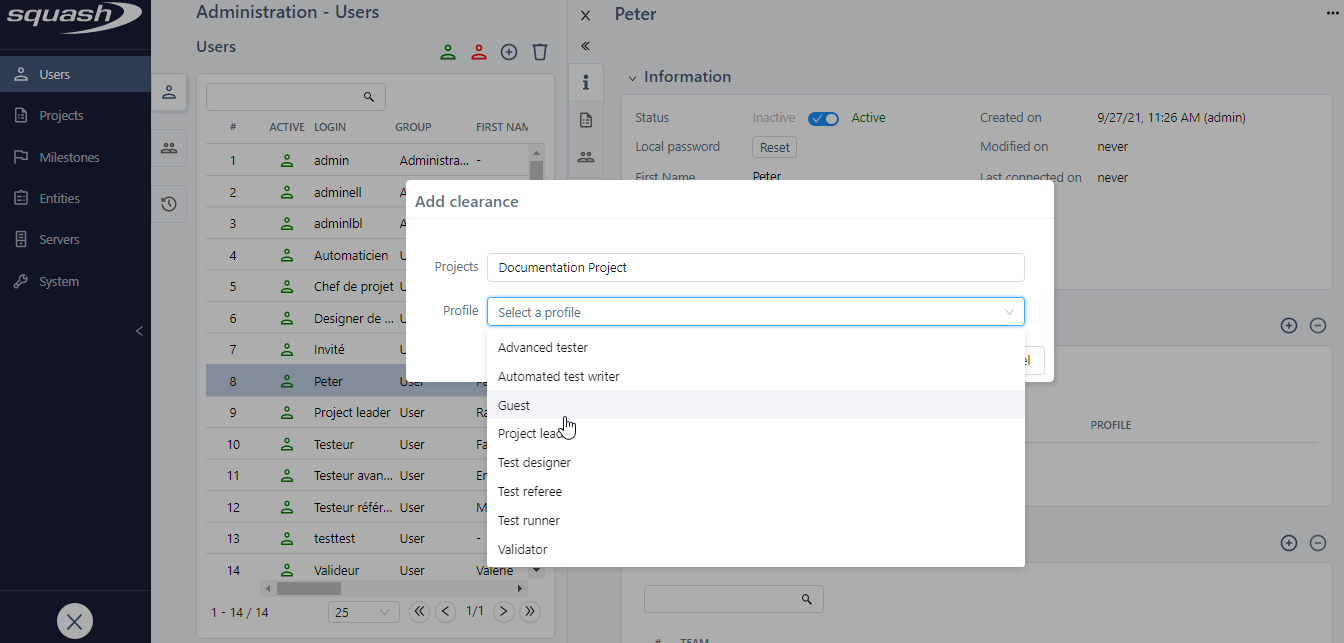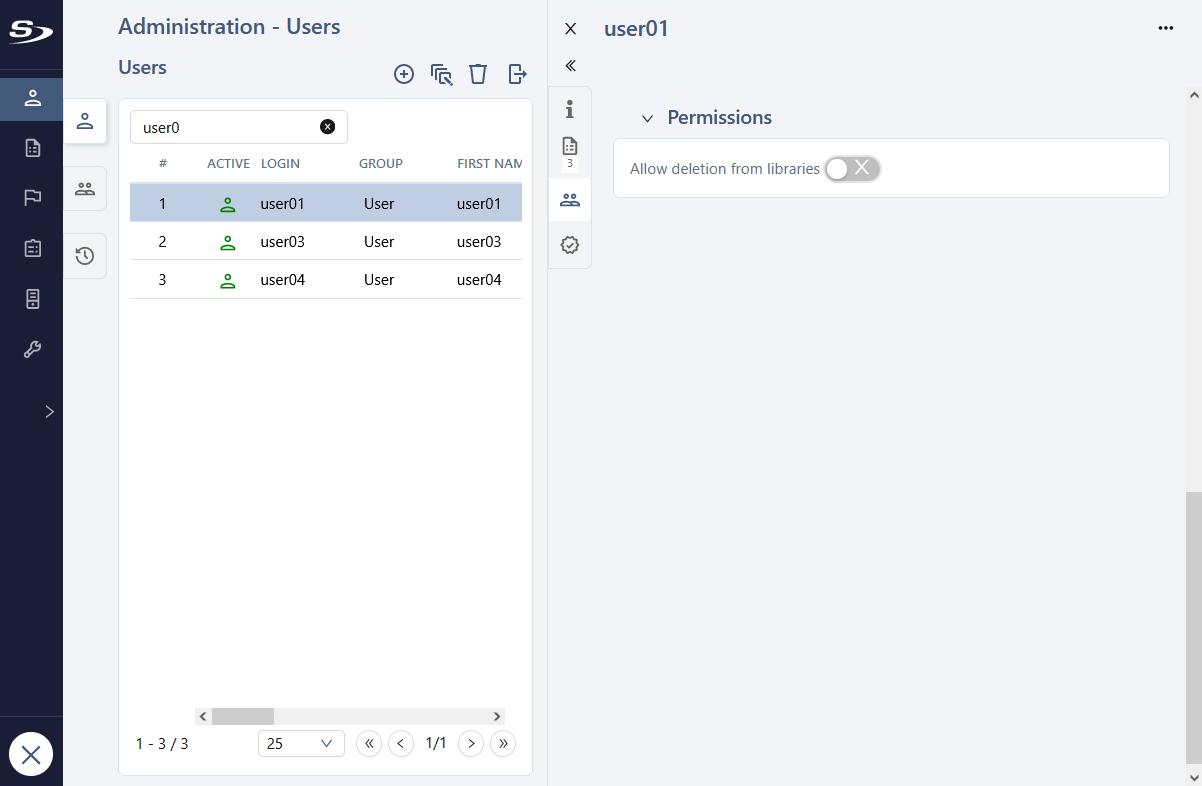Assign Permissions
For a given project, a user or team of users is assigned a profile. This profile will define their permissions for the project they are on.
User Profiles in Squash TM
There are 8 user profiles in Squash TM. All have different permissions:
- Project leader: In charge of project management. They have access to the administration of the project and milestones.
- Test referee: They have create/edit/delete permissions in the project's functional workspaces.
- Test designer: Profile dedicated to the writing of test cases. They can't execute test cases.
- Advanced tester: They can't create requirements but they can modify existing test cases and execute them.
- Tester: They can neither create nor modify requirements and test cases. They can only execute the tests that are assigned to them.
- Validator: They can modify test cases and requirement attributes and validate them, and they can view test executions.
- Guest: Reading rights only for the project.
- Automated test writer: They only have permissions in the Automated workspace dedicated to them (Automated test writers)
Add a Permission to a User or Team
To add a permission to a user or team, on a user or team's consultation page, click on the button ![]() in the "Permissions" block.
in the "Permissions" block.

In the "Add permissions", you can select one or multiple projects, then give the user or team a profile for the projects you selected.
To remove one or multiple permissions from a user or team, click on the buttons [-] at the end of each row, or on top of the "Permissions" block.
Info
If a user is part of multiple teams with different permissions for different projects, then that user's permissions are accumulated on all these different projects.
Focus
If a user has different profiles for a same project due to the accumulation of their permissions and those of the teams they are assigned to, the profile with the most permissions prevails over the others.
Allow/Forbid deletion from the librairies
Warning
This feature is available with the Squash TM Premium plugin included in the Squash TM Premium license.
In order to avoid accidental deletions, deletion can be forbidden for each user.
Deletion can be forbidden:
- for a single user from the 'Permissions' block of the user's consultation page
- for multiple users from the users' table by clicking on
and selecting the "Forbid deletion" in the "Permissions" field.
When deletion is forbidden, the user can no longer delete objects from the library of each workspace and for all projects. Only objects in the librairies are concerned. Test steps, test plan items and executions can still be deleted.

Info
When deletion is forbidden, it is recommended to create a "Trash" folder in the project or a "Trash" project where users can move the objects to be deleted. An administrator or project leader can then clear its content.